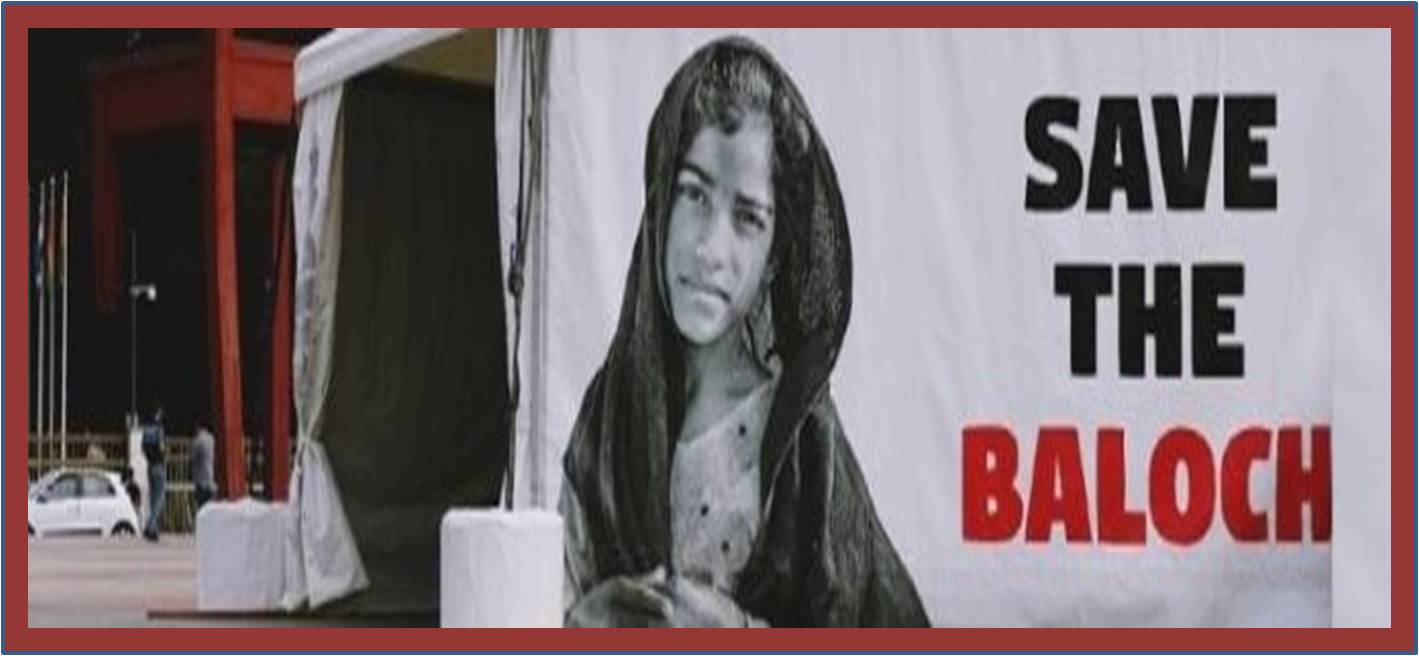The increased chances of protest and uprisings in Balochistan have not only destabilized the region but also affected the interests of a number of external actors. While undoubtedly compromising for some, it has also been used as a strategic tool by others. Attacks by the Baloch on Chinese infrastructural projects in Pakistan are detrimental to Iranian interests also, with Iran discussing the possibility of a liquefied natural gas pipeline being connected with the CPEC as well as greater cooperation between the ports of Gwadar and Chabahar, tensions in India have been stoked, as the latter port was developed with Indian investment. For New Delhi, Chabahar was meant to be a means in circumventing Pakistan and solidifying India’s access to Central Asia. The project was also part of New Delhi’s larger aspirations of countering Chinese influence in the region through the development of India’s own counter port. Supposed intervention by India in the region has thus been repeatedly used by the Pakistanis as a tool to link India with the Balochistan freedom struggle.
A separate, friendly, united Balochistan would undoubtedly serve India’s greater strategic interests of containing Pakistan’s ambitions. However, the question of whether the Indian government has truly intervened in the region is up for debate. Nonetheless, Pakistan has accused India of supporting militant groups in Balochistan, since the very first uprising in 1948. The relation to Balochistan in Indian Prime Minister Narendra Modi’s speech in 2016 was also viewed by Islamabad as an intrusion into Pakistan’s affairs. However, with no references to Balochistan since then, it can be understood that the reference was merely meant as anti-Pakistan rhetoric related to the Kashmir issue rather than any actual support for the freedom movement. On the other hand, for the Baloch, the largest external threat comes from China. The Baloch approach toward Chinese investment, which was initially accusatory of Islamabad and Beijing’s exploitation of Balochistan’s resources, has gradually turned violent. Within the last two years, militants have carried out a number of shootings and bombings against Chinese infrastructural projects and Chinese workers.
What the Baloch see as exploitation, Islamabad sees as development and Beijing sees as strategic influence. As part of the BRI, the CPEC has been touted as one of its biggest and most controversial projects yet. Initially valued at 46 billion USD, the whole cost had risen to 62 billion USD as of 2017, which has undoubtedly increased even more by now.

With infrastructural projects spanning the length and breadth of Pakistan, it is perhaps the biggest project undertaken under the BRI. However, a majority of these projects are found in the province of Balochistan. The Gwadar International Port further as its airport, along with a vast array of pipelines, railways, and highways all run through this region. These projects are meant merely to facilitate trade and mining for Pakistan and grant China access to the Arabian Sea.
For the Baloch, however, there is not much to gain not only are their resources being exploited but also their land. Gwadar, which constituted the crux of China’s strategic plans for the region, has seen a complete special economic zone leased to China for a total of 40 years. As is that the case with other Chinese projects around the world, projects and investment under the BRI, including the CPEC, bring with them an influx of Chinese workers. it’s believed that China plans to settle nearly half a million Chinese in Gwadar port as part of the CPEC, which will have serious repercussions on the national, economic, and historic rights of the Baloch. With numerous Chinese set to enter Balochistan, the Baloch fear irreversible demographic changes and increased marginalization.
While the Baloch have begun a series of attacks against CPEC projects within the region, their leaders are unsuccessfully attempting to draw in support from external stakeholders, terming the CPEC as “threatening to the interests of both India and therefore the US. Nonetheless, while such appeals are directed at the US government time and again, Washington has largely turned a deaf ear. While other issues within Asia have gained significant attention, the Balochs’ freedom struggle has been largely unreported or ignored. The conflict over Kashmir, for example, has featured widely in the international media as well as international government statements for decades, the international media has often castigated the Indian soldiers for perceived abuses in Kashmir, while largely ignoring the atrocities committed by the Pakistanis in Balochistan. The international community’s contrasting approach to both these issues is quite questionable, lending itself to the politicization of strategic interests. in this scenario, the Baloch are another time left to fend for themselves.
The future of the Baloch and their freedom movement is embedded in uncertainty. While there are many that see the possibility of a resurgence as likely, the odds are stacked strongly against the Baloch. Lacking in both military prowess also as economic financing, the Baloch have only been able to sustain their movement for this long due to sheer determination.
Thus, the Baloch freedom struggle has suffered a shortage of numbers which will never be a match for the Pakistani military. However, this is not the only obstacle to a united state of Balochistan, the lack of international support and internal unity has also had similar effects. Most of the current leaders of Balochistan are subsumed by their own self-interests and internal political tensions and lack the motivation to form a common front against the Pakistani state. Not only have some sought to fight their own fight, causing the movement to splinter, but many leaders have also been wooed by the government in Islamabad and have thus turned against their own. The insufficiency of support from the international community for the movement has become superficial. With the military becoming more repressive, the cases of enforced disappearances mounting daily, and the insurgency failing, it has become evident that the Balochare running out of time. ( Concluded)
Courtesy : Vijay Kumar

